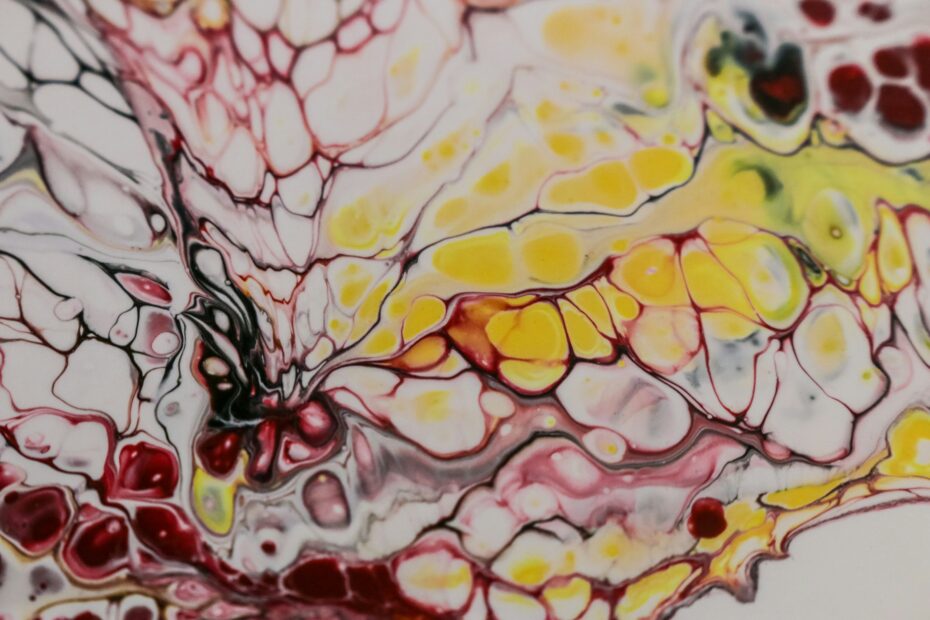I am currently working as a research assistant with Rodika Sokoliuk at the CIMCYC, where I completed my Master’s degree in Cognitive and Behavioural Neuroscience. My research focus so far has been on neural oscillations, investigating how rhythmic activity supports cognition. Specifically, I have concentrated on alpha-band modulations during auditory attention, hoping to better understand the functional role of these brain rhythms. Before joining the CIMCYC, I obtained my bachelor’s degree in Cognitive Neuroscience & Psychology at Utrecht University (University College Utrecht). Outside of science I love hands-on art projects, animals and baking!

Our lab is located at the Mind, Brain and Behavior Research Center. Here we have access to several behavioral testing rooms, a 3T Siemens Magnetic Resonance Imaging facility with compatible EEG and EyeLink Eyetracker, high-density EEG recording devices, and a Transcranial Magnetic Stimulation device with a robotic assistant and neuronavigator.

People
MARÍA RUZ
Senior PI
Maria did her PhD in Granada and the Sackler Institute for Developmental Psychobiology in New York, and enjoyed a postdoc in New College at Oxford. She is currently Professor of Cognitive Neuroscience at the Mind, Brain and Behavior Research Center of the University of Granada. She has a broad interest in understanding the neural mechanisms that shape cognition in the human brain.
Carlos González-García
PI
I am a Ramón y Cajal fellow in Granada, where I did my PhD with María Ruz and Pío Tudela. I spent some time as a Fulbright scholar in Biyu He’s lab at NIH and NYU, and as a Marie Skłodowska-Curie postdoc fellow in Marcel Brass’ lab at Ghent University. I am a psychologist often navigating the intersection of cognitive and computational neuroscience.
ANA F. PALENCIANo
PI
I did my PhD at the Mind, Brain, and Behavior Research Center with Maria Ruz, exploring how the brain flexibly encodes novel, instructed demands. I continued deepening on that field while working as a postdoc at Ghent University, in Marcel Brass’ and Baptist Liefooghe’s labs. Now I am a postdoc researcher at the University of Granada. In general terms, I’m interested in studying neural task representations using fMRI/EEG and multivariate analyses.
RODIKA SOKOLIUK
PI
I am a Ramón y Cajal fellow based in Granada. I did my PhD with Rufin VanRullen in Toulouse (France), followed by a postdoc with Simon Hanslmayr, Karen Mullinger and Stephen Mayhew in Birmingham and Nottingham (UK). I then pursued a second postdoc at the Centre of Human Brain Health in Birmingham with Damian Cruse, before I relocated to Berlin (Germany) to work with Surjo Soekadar and Andrea Kühn at the Charité University Hospital. My current research interests blend what I have learnt during my research journey, straddling the line between basic and applied research. Combining electrophysiology with cognitive paradigms, I aim to improve diagnostic and prognostic accuracy in unresponsive patients with disorders of consciousness.
David Richter
PI
I am a Marie Skłodowska-Curie postdoc at the Mind, Brain, and Behavior Research Center, where I explore how predictions influence sensory processing and how we learn from statistical regularities. Previously, I was a postdoc in VU Amsterdam, focusing on the neural underpinnings of distractor suppression. Prior to this, I was a postdoc and completed my PhD in the Predictive Brain Lab at Donders Institute, specializing in predictive processing. More information about my research can also be found on my website.
BLANCA AGUADO-LÓPEZ
MSc Neuroscience — PhD Student
I am a PhD student at the University of Granada, where I also completed my Master’s degree on Cognitive and Behavioral Neuroscience. I am studying the mechanisms of preparation in relation with motivation. In these studies, we use EEG and fMRI. In my free time I love hiking, travelling and watercolor painting.
Francisco Gutiérrez
MSc Neuroscience — Phd Student
I am a PhD student at the University of Granada, where I also completed a master’s degree in Cognitive and Behavioral Neuroscience. My research focuses on the neuro-cognitive mechanisms that underlie the modulation that social expectations have on the perception of other people. To this end, we combine behavioral measures such as mouse movements with neural recordings such as EEG and fRMI. I use my free time for climbing, music and friends, not forgetting my lovely kitty.
Paula Pena
MSc Neuroscience — Phd Student
I am a PhD student at the University of Granada, where I also completed an MSc on Cognitive and Behavioral Neuroscience. I am studying preparatory mechanisms relevant when performing novel tasks and how these neural task codes are structured. In my free time I love going to the movies and crocheting.
Michelle Hefner
Biomedical engineer - PhD Student
I am a PhD student at the University of Granada, co-supervised by María Ruz & Christopher Summerfield. I have a dual Bachelor’s degree in biomedical engineering and chemical & biological engineering from Colorado State University, where I was an undergraduate researcher in a cognitive neuroscience lab working on multimodal fusion of neuroimaging data and machine learning. Loosely, I’m interested in neuroimaging and AI and using computational methods to model and investigate cognitive processes in the human brain. Outside of research I love cooking, the outdoors, and music!
Johannah Voeller
MSc Psychology - PhD Student
I am a PhD student at the University of Granada, co-supervised by Carlos González García & Juan Linde Domingo. During my PhD, I study how we learn new information in a single instance, focusing on the contribution of different memory systems to retaining this information over time. Previously, I completed my MSc in Psychology at the University of Leipzig, Germany, during which I was a research assistant at the Max Planck Institute for Human Cognitive and Brain Sciences under the supervision of Prof. Dr. Doeller. Outside of everything brain-y I love arts & crafts, the outdoors, and fries!
CATHERINE SHOEBRIDGE MARTIN
MSc Neuroscience - Research Assistant
ALUMNI
- José Manuel García, MSc.
- Chema G. Peñalver, Ph.D.
- Sergio Gaspar, MSc.
- Tijana Bačlić, MSc.
- Paolo Buttazzoni, MSc.
- Rocío Rodríguez Valdés, MSc.
- Ricardo de Haro, MSc.
- David López-García, Ph.D.
- Tara Beilner, MSc.
- Alberto Sobrado, MSc.
- Christopher Williamson
- Mercedes Fernández-Argüelles
- Kenéz Bogdány, MSc.
- Alejandro Sandoval, MSc.
- Paloma Díaz-Gutiérrez, Ph.D.
- Juan E. Arco, Ph.D.
- Sonia Alguacil, Ph.D.
- María Tortosa, Ph.D.
- Clara Aranda, Ph.D
- Lidia Izquierdo
- Cristina Sánchez
- Javier Guerrero, MSc.
- Marta Puertollano, MSc.
- Victor Moreno
- Noelia Herrera, MSc.
- Beatriz Moreno, MSc.
- Antonio Barba, MSc.
- Celia Gaertig, MSc.
- Anna Moser, MSc.
- Aina Casaponsa, MSc.
- Tatiana Strizhko, MSc.
Visiting students
- Isa Borret
- Justine Tielemans
- Sofia Lepki
- Antonina Roemer
- Sahar Seifzadeh
- Bazil Pasques
- Fanni Vikor
- Merel de Merlier
- Laura De Laere
- Yulya Bedritskaya
- Giada Viviani
- Marc Sabio
- Luc Vermeylen
- Despina Gatz
- Flavia Arnese
- Iulia Boncu
- Federico Citterio
Research

Neural coding of information for proactive cognitive control
PI: María Ruz
Funded by the Spanish Ministry of Science — PID2022-138940NB-I00
Ready, Steady, Go! It is common lay knowledge that preparing in advance improves the efficiency of behavior. Why and how this happens, however, is still far from being understood. One of the research fields that can provide highly valuable insights to advance this knowledge is the study of information coding in the human brain. The present project will test the overarching hypothesis that anticipatory activations reflect a form of internal control of brain circuit dynamics that brings cortical states closer to the representational subspace that matters for the upcoming task. We will employ functional magnetic resonance (fMRI) and electroencephalography (EEG) neuroimaging combined with several multivariate analyses to investigate the spatio-temporal dynamics of the neural codes underlying advance preparation in the human brain.

PreVision - Prediction error computation in visual perception
PI: David Richter
Funded by Marie Skłodowska-Curie Action — 101147241
Prior knowledge plays a central role in shaping our perception and interactions with the world. Predictive coding theories provide an influential framework that formalizes the neural computations underlying the integration of prior knowledge into perception. A central tenet of predictive coding is the computation of prediction errors, which signify the discrepancy between predictions derived from prior knowledge and incoming sensory input. Despite ample empirical evidence supporting the existence of prediction errors, such as heightened sensory responses to unexpected compared to expected stimuli, several unresolved questions persist.
One pivotal question pertains to the nature of the surprise encoded in sensory prediction errors across the visual cortical hierarchy. Does the computation of prediction errors reflect local surprise, specific to each level in the visual hierarchy (e.g., surprising orientations in the primary visual cortex)? Alternatively, is the coding of surprise inherited top-down, aligning with the notion in predictive coding that predictions are relayed from higher to lower areas? Furthermore, it remains unclear whether the computation of surprise dynamically adapts to our goals or remains a static feature of cortical tuning. Lastly, the networks and temporal dynamics that underlie prediction and prediction error computations are poorly understood.
The PreVision project aims to address these critical knowledge gaps by integrating advanced neuroimaging techniques and artificial intelligence methodologies. By shedding light on the fundamental neurocomputational mechanisms that drive perception, this research seeks to enhance our understanding of how prior knowledge influences sensory processing in the brain.

Neural coding geometries for flexible behavior
PI: Ana F. Palenciano
Funded by the Spanish Ministry of Science — PID2023-151911NA-I00
This research project focuses on the principles by which task information is encoded in distributed brain activity, addressing the hypothesis that these mechanisms are determined by (and fine-tuned to) current computational demands. Previous literature has identified two main coding architectures that support cognitive control: conjunctive coding, where tasks are represented by context-unique and highly segregated activity patterns, and compositional coding, where abstract neural codes are recombined to generalize to novel task settings. Our project aims to examine whether and how different contextual factors shape the neural space toward the conjunctive or compositional extremes, thereby supporting adaptive, goal-oriented behavior. To achieve this, we will explore where (fMRI) and when (EEG) in the brain neural task codes emerge, employing a comprehensive multivariate pattern analysis protocol to characterize the underlying representational geometries.

Silent waves of consciousness
PI: Rodika Sokoliuk
Funded by the Ramón y Cajal Grant 2022 — RYC2022-037911-I
This project focuses on improving the accuracy of prognosis and diagnosis in unresponsive patients with disorders of consciousness, while also developing therapeutic tools for neurorehabilitation. Assessing consciousness in clinical settings typically relies on overt command following—verbal or motor responses that indicate communication between the patient and medical staff. However, unresponsive patients are unable to communicate in the same way as healthy individuals. Some of these patients can covertly follow commands, which can be detected by measuring brain activity in response to specific instructions. Others, however, show no measurable response, yet this does not necessarily mean they are unconscious. Command following requires the coordination of multiple cognitive processes, the integrity of which I will investigate using electroencephalography (EEG). Specifically, I will focus on oscillatory brain patterns associated with perception, attention, and working memory. The aim of this project is not only to provide a more detailed picture of each patient’s cognitive state to improve diagnostic and prognostic accuracy, but also to identify targets for personalised neurorehabilitation. By applying various neuromodulation techniques, we aim to develop therapeutic interventions tailored to each patient’s needs. Ultimately, this approach could help restore covert communication in a broader group of seemingly unresponsive patients, enhancing both their diagnosis and potential for recovery.

FLARE - The representational architecture of fast learning through abstraction
PI: Carlos González-García
Funded by the Spanish Ministry of Science — PID2023-149428NB-I00
Part of the perceptual knowledge we acquire in everyday life does not rely on repeated exposure or training: a single significant event can induce robust changes on brain activity and behavior. Such one-shot perceptual learning emerges during development in parallel to incremental learning and plays a crucial role when evidence is scarce or ambiguous. However, while most cognitive neuroscientists agree on its relevance to our adaptation abilities, the neural and cognitive computations driving one-shot learning remain largely unknown.
Predictive processing accounts have been very influential in the study of one-shot perceptual learning. From this perspective, significant perceptual episodes create lingering traces in the brain, reflecting internal models of the external world, or priors. Priors are proposed to then inform downstream brain regions about the causes of sensory input. Although this framework offers an intuitive explanation of the procedures that might support one-shot perceptual learning, we currently lack an optimal description of the precise nature of priors and the information they contain.
The overall aim of FLARE is to provide fundamental insights into how internal models of single perceptual events are instantiated in patterns of brain activity. FLARE constitutes a novel approach combining the PI’s theoretical background and expertise in cutting-edge neuroimaging methods that will allow us to pursue the overall objective across two experimental series.
The project will tackle two major open questions: 1) What is the content of priors of single perceptual events across the brain? And 2) To what extent does one-shot perceptual learning rely on sensory-specific vs. abstract priors of the episode? For both goals, we will employ a combination of tailored behavioral tasks, computational modeling, and neuroimaging methods.
Publications
RECENT PUBLICATIONS
Richter, D., Pena, P., Ruz, M., Rapid Computation of High-Level Visual Surprise, iScience (2025) – PDF Pending
Vermeylen, L., Braem, S., Ivanchei, I. I., Desender, K., García-Román, J. M., González-García, C., … & Notebaert, W. (2025). The temporal dynamics of metacognitive experiences track rational adaptations in task performance. Communications Psychology, 3(1), 96. — PDF
Gutiérrez-Blanco, F., Palenciano, A.F., Ruz, M. (2025). Hand movements reveal the time course of gender stereotypes during facial categorization. Psicologica 46(2): e17298.— PDF
Pena, P., Palenciano, A. F., González-García, C., & Ruz, M. (2025). Novel verbal instructions recruit abstract neural patterns of time-variable information dimensionality. Journal of Neuroscience. — PDF
Peñalver, J. M., González-García, C., Palenciano, A. F., López-García, D., & Ruz, M. (2024). Context-dependent neural preparation for information relevance vs. probability. Imaging Neuroscience. — PDF
Aguado-López, B., Palenciano, A. F., Peñalver, J. M., Díaz-Gutiérrez, P., López-García, D., Avancini, C., … & Ruz, M. (2024). Proactive selective attention across competition contexts. Cortex, 176, 113-128. — PDF
Peñalver, J. M., López-García, D., González-García, C., Aguado-López, B., Górriz, J. M., & Ruz, M. (2023). Top-down specific preparatory activations for selective attention and perceptual expectations. NeuroImage, 271, 119960. — PDF
Palenciano, A.F., Senoussi, M., Formica, S., & González-García, C. (2023). Canonical template tracking: measuring the activation state of specific neural representations. Frontiers in Neuroimaging — PDF
Formica, S., González-García, C., Senoussi, M., Marinazzo, D., & Brass, M. (2022). Theta-phase connectivity between medial prefrontal and posterior areas underlies novel instructions implementation. eNeuro — PDF
Sobrado, A.*, Palenciano, A. F.*, Gonzalez Garcia, C., & Ruz, M. (2022). The effect of task demands on the neural patterns generated by novel instruction encoding. Cortex — PDF
Wisniewski, D., Cracco, E., González-García, C., Brass, M. (2022). Relating Free Will Beliefs and Attitudes. Royal Society Open Science. — PDF
Liu, X., Wisniewski, D., Vermeylen, L., Palenciano, A. F., Liu, W., & Brysbaert, M. (2021). The representations of Chinese characters: evidence from sub-lexical components. Journal of Neuroscience. — PDF
Wisniewski, D., González-García, C., Formica, S., Woolgar, A., & Brass, M. (2023). Adaptive coding of stimulus information in human frontoparietal cortex during visual classification. NeuroImage, 274, 120150. — PDF
López-García, D., Peñalver, J. M., Górriz, J. M., & Ruz, M. (2022). MVPAlab: A machine learning decoding toolbox for multidimensional electroencephalography data. Computer Methods and Programs in Biomedicine, 214, 106549. — PDF
Mas-Herrero, E., Adrover-Roig, D., Ruz, M., & de Diego-Balaguer, R. (2021). Do bilinguals outperform monolinguals in switching tasks? Contrary evidence for nonlinguistic and linguistic switching tasks. Neurobiology of Language, 2(4), 586-604. — PDF
Arco, J. E., Ramírez, J., Górriz, J. M., Ruz, M., & Alzheimer’s Disease Neuroimaging Initiative. (2021). Data fusion based on Searchlight analysis for the prediction of Alzheimer’s disease. Expert Systems with Applications, 185, 115549. — PDF
Spears, D., Okan, Y., Hinojosa-Aguayo, I., Perales, JC., Ruz, M. & González, F. (In press) Can induced reflection affect moral decision-making? Phiilosophical Psychology. — PDF
Díaz-Gutiérrez, P., Arco, J.E., Alguacil, S., González-García, C., Ruz, M. (2020). Neural representations of social valence bias economic interpersonal choices. Neuropsychologia, 147, 107584. — PDF
Lopez-Garcia, D., Sobrado, A., Peñalver, JMG., Gorriz, JM., Ruz, M. (2020) Multivariate pattern analysis techniques for electroencephalography data to study Flanker interference effects, International Journal of Neural Systems. https://doi.org/10.1142/S0129065720500240. — PDF
González-García, C., García-Carrión, B., López-Benítez, R., Sobrado, A., Acosta, A., & Ruz, M. (2020) Induced affective states do not modulate effort avoidance. Psychological Research, 1-13. — PDF
Correa, Á., Alguacil, S., Ciria, L.F., Jiménez, A. & Ruz, M. (2020). Circadian rhythms and decision-making: a review and new evidence from electroencephalography. Chronobiology International, doi: 10.1080/07420528.2020.1715421. — PDF
Díaz-Gutiérrez, P., Gilbert, S. J., Arco, J. E., Sobrado, A., & Ruz, M. (2020). Neural representation of current and intended task sets during sequential judgements on human faces. NeuroImage, 204, 116219. — PDF
Arco, J. E.; Díaz-Gutiérrez, P., Ramírez, J., & Ruz, M. (2020). Atlas-based classification algorithms for identification of informative brain regions in fMRI data. Neuroinformatics, 1-18. — PDF
Juechems, K., Balaguer, J., Castañón, S. H., Ruz, M., O’Reilly, J. X., & Summerfield, C. (2019). A network for computing value equilibrium in the human medial prefrontal cortex. Neuron, 101(5), 977-987. — PDF
Palenciano, A. F., González-García, C., Arco, J. E., Pessoa, L. & Ruz, M. (2019) Representational organization of novel task sets during proactive encoding. Journal of Neuroscience, 719–725. — PDF
Palenciano, A. F., González-García, C., Arco, J. E., & Ruz, M. (2018). Transient and sustained control mechanisms supporting novel instructed behavior. Cerebral Cortex, 1-13. — PDF
Arco, J.E., González-García, C., Díaz-Gutiérrez, P., Ramírez, J., & Ruz, M. (2018). Influence of activation pattern estimates and statistical significance tests in fMRI decoding analysis. Journal of Neuroscience Methods, 308, 248–260. — PDF
Díaz-Gutiérrez, P.; Alguacil, S. & Ruz, M. (2017). Bias and control in social decision-making. In A. Ibáñez, L. Sedeño & A. García (eds), Neuroscience and Social Science: The missing link (pp 47- 68). Cham: Springer.
Juechems K, Balaguer J, Ruz M, Summerfield C. (2017) Ventromedial prefrontal cortex encodes a latent estimate of cumulative reward. Neuron 93(3):705-714.e4. doi: 10.1016/j.neuron.2016.12.038.
Palenciano, AF, Díaz-Gutiérrez, P, González-Garcia, C, Ruz, M (2017) Neural mechanisms of cognitive control/Mecanismos neurales de control cognitive. Estudios de Psicología 38 (2), 311-337. — PDF
González-García C, Arco JE, Palenciano AF, Ramírez J, Ruz M. (2017) Encoding, preparation and implementation of novel complex verbal instructions. Neuroimage 1;148:264-273. doi: 10.1016/j.neuroimage.2017.01.037 — PDF
Alguacil S, Madrid E, Espín AM, Ruz M. (2017) Facial identity and emotional expression as predictors during economic decisions. Cognitive, Affective & Behavioral Neuroscience 17(2):315-329. doi: 10.3758/s13415-016-0481-9
Correa A, Ruiz-Herrera N, Ruz M, Tonetti L, Martoni M, Fabbri M, Natale V. (2017) Economic decision-making in morning/evening-type people as a function of time of day. Chronobiology International 34(2):139-147. doi: 10.1080/07420528.2016.1246455. — PDF
Lapotka M, Ruz M, Salamanca Ballesteros A, Ocón Hernández O. (2016) Cold pressor gel test: A safe alternative to the cold pressor test in fMRI. Magnetic Resonance Medicine doi: 10.1002/mrm.26529
González-García C, Mas-Herrero E, de Diego-Balaguer R, Ruz M. (2016) Task-specific preparatory neural activations in low-interference contexts. Brain Structure & Function (8):3997-4006. — PDF
González-García C, Tudela P, Ruz M. (2015) Unconscious biases in task choices depend on conscious expectations. Consciousness & Cognition 37:44-56. doi: 10.1016/j.concog.2015.08.001. — PDF
Alguacil, S., Tudela, P., & Ruz, M. (2015). Ignoring facial emotion expressions does not eliminate their influence on cooperation decisions. Psicológica, 36(2). — PDF
Wei Z, Ruz M, Zhao Z, Zheng Y. (2015) Epistemic motivation affects the processing of negative emotional stimuli in interpersonal decisions. Frontiers in Psychology 23;6:1057. doi: 10.3389/fpsyg.2015.01057. — PDF
Sanabria D, Madrid E, Aranda C, Ruz M. (2015) Attentional orienting to own and others’ hands. Experimental Brain Research 233(8):2347-55. doi: 10.1007/s00221-015-4303-z.
Ruz M, Aranda C, Sarmiento BR, Sanabria D. (2015) Attention to individual identities modulates face processing. Experimental Brain Research 2015 May;233(5):1491-502. doi: 10.1007/s00221-015-4223-y. — PDF
Ibanez A, Kotz SA, Barrett L, Moll J, Ruz M. (2014) Situated effective and social neuroscience. Frontiers in Human Neuroscience 28;8:547. doi: 10.3389/fnhum.2014.00547. — PDF
Moser, A., Gaertig, C. & Ruz, M. (2014) Social information and personal interests modulate neural activity during economic decision-making. Frontiers in Human Neuroscience 8:31. doi: 10.3389/fnhum.2014.00031. — PDF
González-García, C., Tudela, P., & Ruz, M. (2014). Functional magnetic resonance imaging: a critical analysis of its technical, statistical and theoretical implications in human neuroscience. Revista de neurologia, 58(7), 318-325. — PDF
Alguacil, S., Tudela, P. & Ruz, M. (2013) Cognitive and affective control in a flanker word task: common and dissociable brain mechanisms. Neuropsychologia, 51, 1663-1672. — PDF
Tortosa, M.I., Lupiáñez, J. & Ruz, M. (2013) Race, emotion, and trust: An ERP study. Brain Research, 1494, 44-55. — PDF
Tortosa, M.I., Strizhko, Capizzi, M. & Ruz, M. (2013) Interpersonal effects of emotion in a multi-round Trust Game. Psicologica, 34, 179-198. — PDF
Ruz, M., Madrid, E., Tudela, P. (2013) Interactions between perceived emotions and executive attention in an interpersonal game. Social, Cognitive & Affective Neuroscience, 8, 838-44. — PDF
Gärtig, C., Moser, A.R., Alguacil, S. & Ruz, M. (2012) Social information and economic decision-making in the ultimatum game. Frontiers in Decision Neuroscience, 6:103. — PDF
Baines, S., Ruz, M., Rao, A., Denison, R. & Nobre AC. (2011) Modulation of neural activity by motivational and spatial biases. Neuropsychologia, 49, 2489-97. — PDF
Ruz, M. & Moser, A. & Webster, K. (2011) Social expectations bias decision-making in uncertain interpersonal situations. PLoS ONE 6(2): e15762. doi:10.1371/journal.pone.0015762. — PDF
Ruz, M. & Tudela, P. (2011) Emotional conflict in interpersonal interactions. NeuroImage, 54, 1685-91. — PDF
Aranda C, Ruz M, Tudela P, Sanabria D. (2010) Focusing on the bodily self: The influence of endogenous attention on visual body processing. Attention, Perception & Psychophysics, 72, 1756-64. — PDF
Aranda C, Madrid E, Tudela P, Ruz M. (2010) Category expectations: A differential modulation of the N170 potential for faces and words. Neuropsychologia, 48, 4038-45. — PDF
Ruz, M. & Fuentes, L. (2009) Beyond perception: Testing for implicit conceptual traces in high-load tasks. Consciousness & Cognition, 18, 820-2. — PDF
Ruz, M. & Nobre, A.C. (2008) Attention modulates initial stages of visual word processing. Journal of Cognitive Neuroscience, 20, 1727-36. — PDF
Ruz, M. & Nobre, A.C. (2008) Dissociable top-down anticipatory neural states for different linguistic dimensions. Neuropsychologia, 46, 1151-60. — PDF
Periáñez, J.A., Ríos, M., Barceló, F., Madrid, E. & Ruz, M. (2008) Atención y neuroimagen. En Maestú, Ríos y Cabestrero (Eds.) Neuroimagen: Técnicas y Procesos Cognitivos (pp. 281-309). Madrid: Elsevier Masson.
Ruz, M., Madrid, E., Lupiáñez, J. & Tudela, P. (2007) Unconscious perception: Illusion or reality? Estudios de Psicología, 28, 167-176.
Lupiañez, J., Ruz, M., Funes, M.J. & Milliken, B. (2007) The manifestation of attentional capture: Facilitation or IOR depending on task demands. Psychological Research, 71, 77-91. — PDF
Ruz, M., Acero, J.J.,Tudela, P. (2006) What does the brain tell us about the mind? Psicologica, 29, 149-157. — PDF
Ruz, M. (2006) Let the brain explain the mind: The case of Attention. Philosophical Psychology, 19, 495-505. — PDF
Ruz, M., Wolmetz, M., Tudela, P. & McCandliss, B. (2005) Two brain pathways for attended and ignored words. NeuroImage, 27, 852-61. — PDF
Ruz, M., Worden, M., Tudela, P. & McCandliss, B. (2005) Inattentional amnesia to words in a high attentional load task. Journal of Cognitive Neuroscience, 17, 768-76. — PDF
Ruz, M., Madrid, E., Lupiáñez, J. & Tudela, P. (2003) High density ERP indices of conscious and unconscious semantic processing. Cognitive Brain Research,17, 719-31. — PDF
Ruz, M., Tudela, P. & Madrid, E. (2003) Neurociencia Cognitiva de la consciencia: Una revisión sobre los mecanismos cerebrales de la actividad consciente. Estudios de Psicología, 24,147-162.
Ruz, M., & Lupiáñez, J. (2002) A review of attentional capture: On its automaticity and sensitivity to endogenous control. Psicologica, 23, 283-309. — PDF
Lupiáñez, J., Rueda, R., Ruz, M., & Tudela, P. (2000) Processing of attended and ignored words in the parafovea: Inhibitory aspects in semantic processing. Psicologica, 21, 233-256.
Locate us
Mind, Brain and Behavior Research Center
University of Granada
Centro de Investigación Mente, Cerebro y Comportamiento (CIMCYC). C/Campus de la Cartuja S/N, 18011, Granada.
- humneuro@ugr.es
- +34 958 245171
- María Ruz











